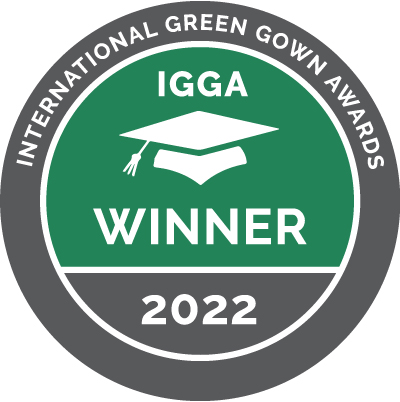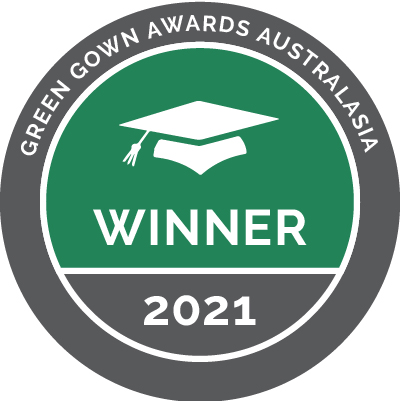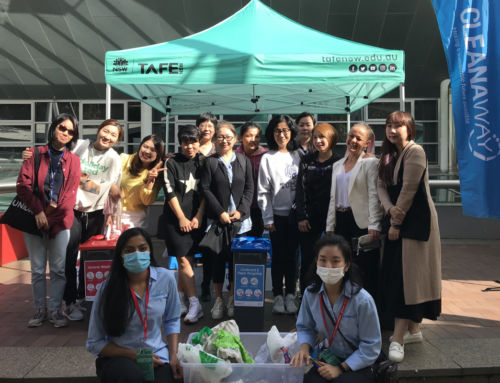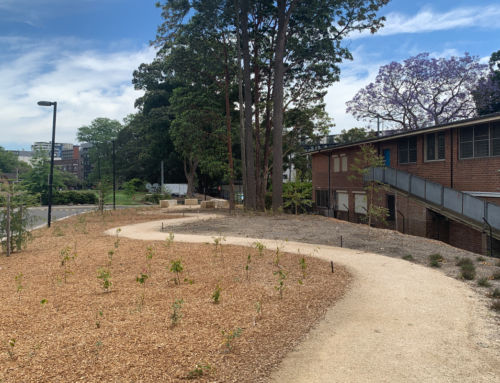First plastic-free food court
In August 2019 UTS opened the new 5 Star Green Star certified UTS Central Building containing an Australian first Plastic Free Food Court. All takeaway food containers are compostable, and drinks are sold in recyclable glass, aluminium and paperboard.
> The initiative
The UTS Central Plastic Free Food Court opened in 2019 setting a new benchmark for Australia. All take-away food packaging is commercially compostable and all drink containers are recyclable glass, aluminium and paper board. The move is a manifestation of the university’s commitment to on-campus sustainability and is part of UTS’s Plastic Free Plan designed to phase out single-use plastics on campus, developed in response to the environmental concerns of staff and students.
The Food Court has eight independent retail tenants, some well-known national and international brands and all leases contain sustainability clauses stipulating tenants must support and accept BYO containers, and that take-away packaging must be certified compostable such as paper, bamboo, cardboard and PLA. The Food Court has a separate waste stream with a bin for food scraps and the compostable packaging, another for Return and Earn scheme recyclable drink containers, and third general bin for everything else.
Staff, and especially students love the initiative as it is a demonstration of how the campus aligns with their values. Futhermore, since opening the Food Court has been visited by other large universities and building and portfolio owners. Information and details, including the sustainability lease clauses, have been freely shared with interested parties (e.g. City of Sydney Council, AMP, Sydney Opera House, UNSW, Macquarie University, Newcastle University). The plastic free food court has even been replicated in other places including Macquarie University in Sydney.
While the retailers had some initial concerns, as soon as the benefits and positive feedback from their customers became apparent, they were very much on board. Some of the national and international chains are even exploring how to expand the compostable packaging to other outlets – taking the impact well beyond UTS.
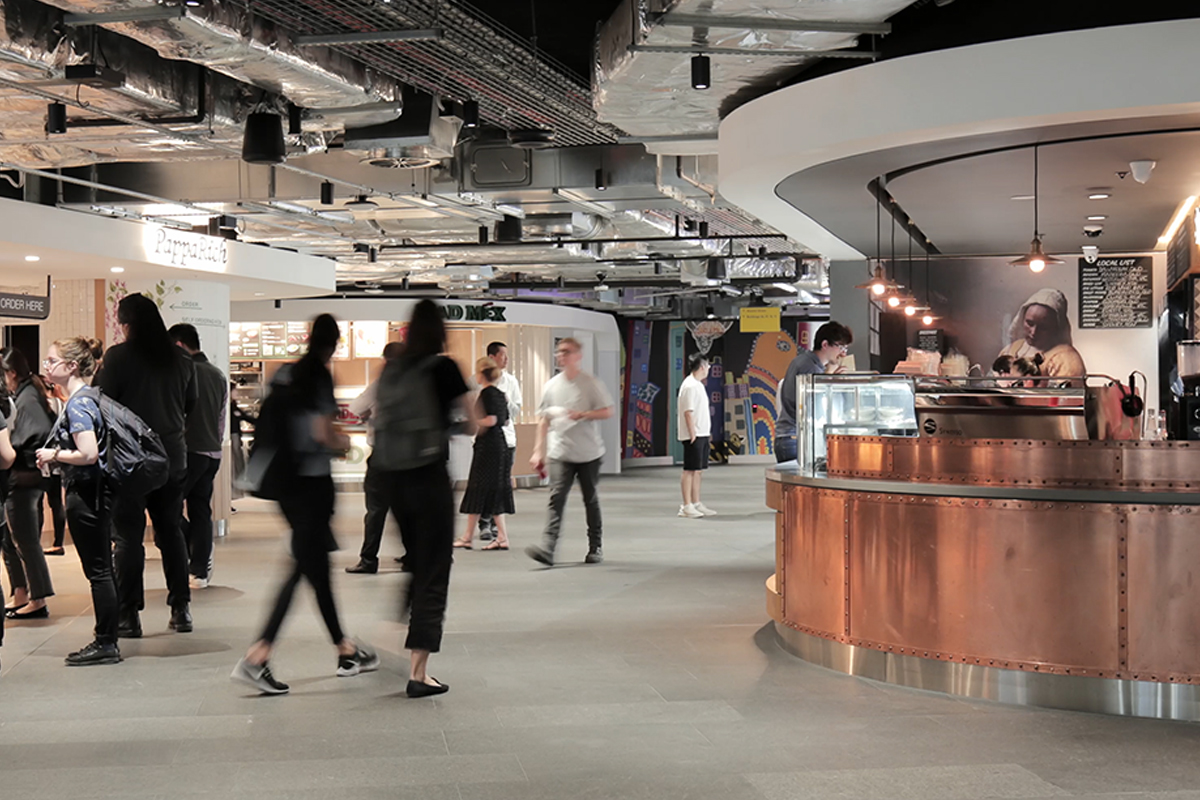

> Environmental and social benefits
- This initiative diverts around 19 tonnes of plastic waste from landfill annually.
- Most importantly, it demonstrates that compostable food packaging is a viable alternative to plastic. Single use plastics are a major environmental problem and most take-away food packaging is not recyclable in Australia. Moving from single use food packaging has significant environmental benefits. While consumers today generally understand this, plastic is ubiquitous and they are seldom given a choice at the point of sale. The UTS Plastic Free Food Court changes this by removing single-use plastics altogether, and making compostable packaging the default standard practice.
- UTS has shared details of the initiative with other universities so the environmental benefits can be replicated.
- Another benefit has been educating some staff and students, not especially engaged in sustainability, about the issues of plastic waste and why BYO containers and eliminating single use plastic is important.
> Leadership and engagement
The initiative is a first in Australia. It has been a wonderful learning process for UTS and our retail partners. The Plastic Free Food Court sets a new benchmark for UTS, our tenants, the food retail industry and the Australian community. A number of the large national and international franchise tenants have used this as a pilot and stated an intention to roll-out the plastic free strategy and packaging to their wider outlets, making the UTS Plastic Free Food Court a catalyst for achieving industry-wide impact.
> Wider societal impact
Single use plastics are a big environmental problem around the world – especially ‘disposable’ food and drink packaging which is generally not recycled. The good news is that the packaging industry has responded with a large and growing range of compostable packaging – made from paper, bamboo, wood, cardboard, PLA etc. These items still have an environmental footprint, and reusable multi-use packaging is preferable. However, where the convenience of take-away is required, compostable packaging can be the solution.
Unfortunately, compared to plastic, compostable packaging is often seen as niche and experimental. Sometimes, but not always it is more expensive. As a result food retailers tend to stick to what they know. The UTS Food Court changes that by normalising compostable packaging. It sets a benchmark and a level playing field in which all tenants operate. The UTS Plastic Free Food Court demonstrates to everyone involved, including the customers, that compostable packaging actually works.





